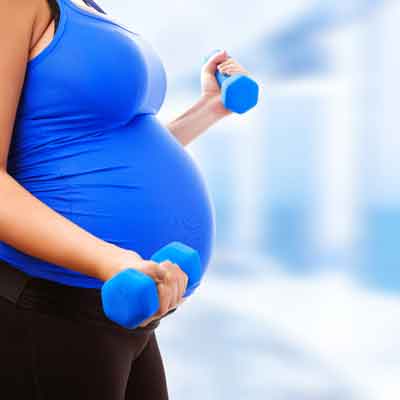Antenatal and Postnatal Physiotherapy
Antenatal and Postnatal Physiotherapy

Antenatal Physiotherapy
Pregnancy alters your body at a rate far faster than any other time in your life. As your baby grows, you will notice that your posture changes, you will move differently and the muscles which normally provide support to your lower back and pelvis will become stretched. It is therefore very common to experience minor aches and pains in a variety of areas. Many women will experience discomfort in their lower back, around the front of their pelvis or into the lower abdominal muscles. You may also notice aches and discomfort around your mid back and rib cage or even headaches.
Whilst symptoms are often only mild and temporary, if they persist for longer than a week or you find they are more severe and are restricting your normal activities, please seek advice from a healthcare professional trained in antenatal care. Normally, early advice and treatment can significantly improve your symptoms and allow you to remain as active as possible throughout your pregnancy.
Physiotherapy can help to improve your symptoms in a number of ways. Gentle hands-on treatment can relieve sore muscles and mobilise stiff joints to improve your movement and reduce pain. A targeted exercise programme can help to maintain your movement, and strengthen your pelvic floor, abdominal muscles and bottom muscles which will provide support to your bump and help your body adapt to your changing posture. Elizabeth also offers pregnancy acupuncture
to help manage pain.
Some of the conditions treated during pregnancy include:
- Lower back pain
- Pelvic Gridle Pain (PGP)
- Symphysis Pubis Disorder (SPD)
- Sacroiliac joint problems
- Coccyx pain (tailbone pain)
- Mid back or rib pain
- Neck and shoulder pain
- Headaches
Pregnancy Pilates is also a great way to maintain strength and flexibility and support your bump whilst the baby grows. Maintaining some fitness during pregnancy can help you recover faster after your baby is born.
Postnatal Physiotherapy
It is incredibly common to experience some weakness in the abdominal muscles and pelvic floor muscles after pregnancy, whether you have had a natural birth or a c-section. This can lead to problems such as back pain, pelvic pain and weakness with bladder and bowel control. Without treatment these conditions can linger and worsen. Targeted treatment can help to significantly improve and often resolve these problems.
From six weeks after delivery onwards, you can benefit from an assessment of your posture, abdominal muscles and advice relating to your pelvic floor. Both the emotional and physical wellbeing of all mums are incredibly important. It is never too late to make a difference; you can achieve improvements many years after pregnancy. Please remember to take the time to look after yourself.
A postnatal assessment can include:
- A postural screen
- Assessment of your abdominal muscles and any separation (diastasis recti)
- Advice regarding strengthening your pelvic floor
- C-section scar management
- Education and advice relating to lifting, feeding, carrying, changing and any baby-related activities which may be causing pain, discomfort or problems
- Individualised postnatal exercise programme working towards your own specific fitness and activity goals (postnatal Pilates is also offered)
- Tailored ‘return to sport’ exercise programme
Please note: if you are experiencing significant problems with your bladder or bowel control, you would benefit from seeing a specialist women’s health physiotherapist. If you would like advice on who to contact for this please get in touch.
Nebula Physio and Wellbeing Ltd
Company No: 12117760
© All Rights Reserved Nebula Physio and Wellbeing Ltd 2024Office F307, Upper Pendrill Court,
Ermine Street North,
Papworth Everard,
CB23 3UY





